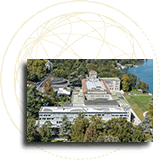Trade in services back to top
The share of services in the economy increased considerably in recent decades. Many governments have recognized the benefits of services liberalization for their economic growth. Ranging from architecture to telecommunications and to transport, services are the largest and most dynamic component of both developed and developing country economies. Important in their own right, they also serve as crucial inputs into the production of most goods. Their inclusion in the Uruguay Round of trade negotiations led to the General Agreement on Trade in Services (GATS). The GATS is innovative in a number of ways. Trade in services is understood to take place in four different ways, often referred to as the four modes of supply.419 The GATS is similar to the GATT in that it contains general rules that apply to all Members and specific commitments in a series of annexed Schedules which have been negotiated by each Member. However, its approach to the basic GATT principles is different: Members may take exemptions to the obligation of most-favoured-nation treatment and grant national treatment only in sectors listed in their Schedules, subject to conditions and qualifications set out there.420
Applicants are requested to supply information on their trade-related services regime.421 Members of the Working Party will then use the question and answer procedure and the examination of the applicant’s regime in the Working Party to obtain fuller factual information. Members of the Working Party are interested in obtaining information on: legislation regulating services; the role of different government agencies; licensing procedures, judicial and arbitral appeal procedures; governance issues (e.g. separation of regulators and service suppliers); and transparency (e.g. publication, prior publication). More detail has naturally been demanded of the larger acceders with well-developed regulatory systems than of smaller countries in which many sectors are unregulated. Questions have been asked on most service sectors, but many relate to sectors such as financial services and telecommunications.
Members have concentrated more on bilateral negotiations for specific commitments on services than on general Protocol commitments related to the rules in the GATS. It should be recalled, however, that under the terms of their Protocols acceders accept the general rules contained in the Agreement Establishing the WTO and the Multilateral Trade Agreements attached to it, including the GATS, when they become Members of WTO.
Only five acceders entered into Protocol commitments related to GATS in their Working Party Reports. These relate to issues specific to the acceder concerned and there is therefore no standard text of commitments. It may be noted that two acceders undertook a relatively large number of Protocol commitments: both of these were dynamic economies that were continuing the process of transition to a full market economy.422 The others accepted a more limited number of commitments.423
Notes:
419. General Agreement on Trade in Services, Article I:2.
“For the purposes of this Agreement, trade in services is defined as the supply of a service: (a) from the territory of one member into the territory of any other member; (b) in the territory of one Member to the service consumer of any other Member; (c) by a service supplier of one Member, through commercial presence in the territory of any other Member; (d) by a service supplier of one Member, through presence of natural persons of a Member in the territory of any other
Member.” back to text
420. General Agreement on Trade in Services, Articles II:1 and XVII:1.
back to text
421. WTO document WT/ACC/1 and WT/ACC/5. back to text
422. Viet Nam, paras 479 (telecom and express delivery), 480 (telecom), 483, 484 and 485 (banking), 488, 489, 491 and 494 (insurance), 496 (express delivery), 498 (joint ventures), 499 retailing, 502 and 503 (joint ventures), 506 (publication of legislation), 507 (licensing procedures and conditions) and 508 (governance and transparency); China, paras 307 (publication), 308 (licensing procedures), paras 309 (independence of regulators from regulated), 310 (regulations away from fixed locations), 312 (definition of terms in Schedule), 315 (partnerships with foreign services suppliers), 317 (commodity inspection agencies), 318 (market research services), 320 (rights of minority shareholders),475 (national treatment), and 494 and 496 (publication). back to text
423. Saudi Arabia, paras 276 (banking), 296, 298 and 299 (insurance); Chinese Taipei, para 211 (telecom); Croatia, para 204 (national treatment). back to text
